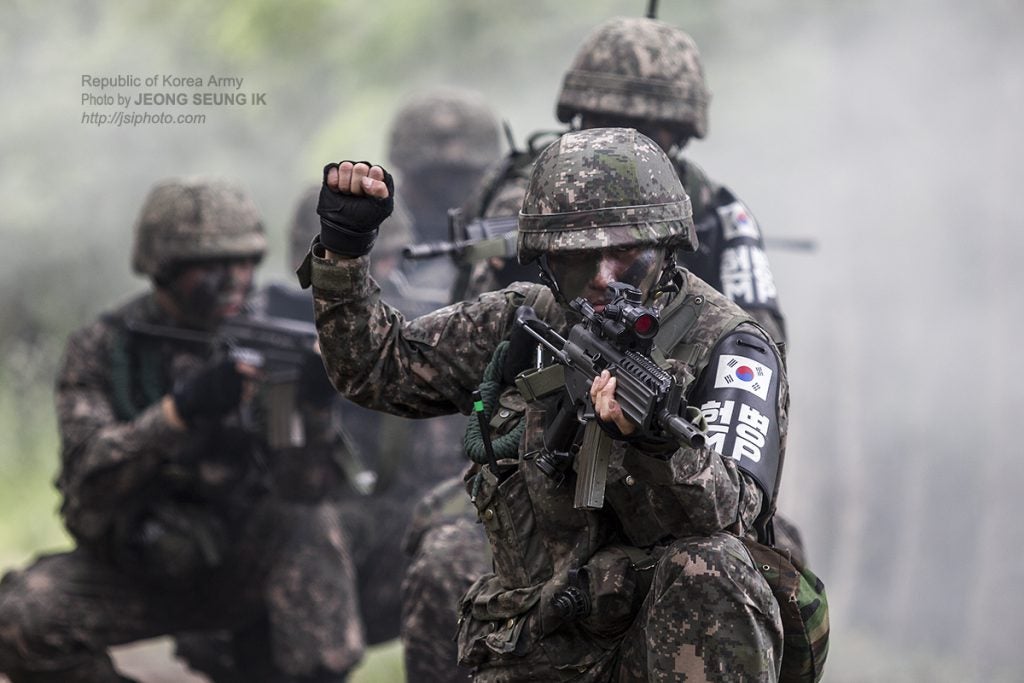Editorial: South Korea’s Noncommitment in the Sino-American Rivalry
As Sino-American competition intensifies, South Korea has proven to not be as willing as some of America’s other regional allies to confront China. Unlike most developed democracies in the region, the Republic of Korea (ROK) has not criticized China’s Honk Kong crackdown, the PRC’s actions in Xinjiang or its activities around Taiwan (despite the president being a human rights lawyer by trade). Similarly, the Moon Jae-in administration has refrained from placing any restrictions on Chinese involvement in 5G infrastructure development.
America is the ROK’s closest and irreplaceable military ally but the PRC has grown to become South Korea’s most important trade partner placing the ROK’s government in a difficult position. According to World Bank data, China accounts for 21.31% of Korean trade while the United States, in second place, accounts for only 12.34%. With this in mind, South Korean leaders are cautious about the disruptions going against China may cause. This is especially true after America’s withdrawal from the Trans-Pacific Partnership and with Korea’s ongoing trade disputes with Japan – its third larger trade partner accounting for 9.45% of trade volume.
Moreover, many in Korea (especially those on the Korean left from which the current president hails) see China as an integral partner for engaging with and reaching a stable relationship with North Korea.
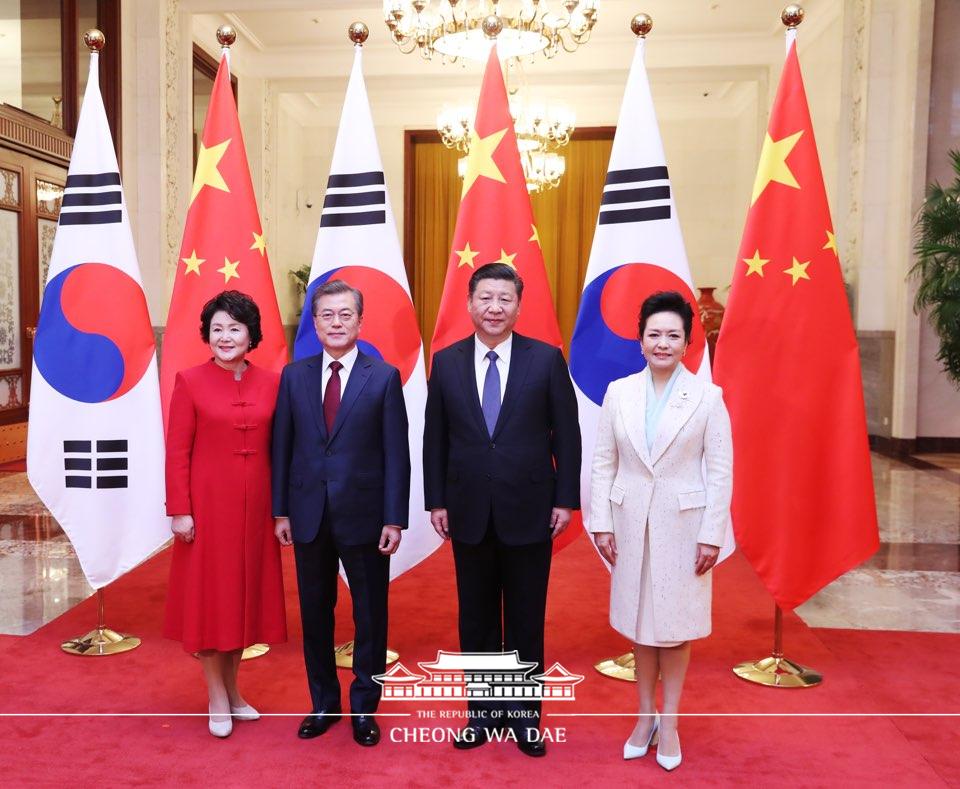
Avoiding confrontation with China may also be perceived as an extension of partisan ideology. The Korean left and the ruling Democratic Party of Korea (DPK) tend to have a more negative image of the United States than the Korean right. America is seen as having served as an enabler of the oppressive dictatorship which ruled South Korea until the 1990s and, by some, as an interloper from outside Asia. The roots of this Anti-Americanism can be found in the 1980 Gwangju Uprising during which the South Korean regime falsely claimed that the United States had consented to its deployment of special forces to quell the uprising. Building off of this ideology, President Moon Jae-in has taken steps to lessen the ROK’s dependency on the United States although security without American support is unfeasible for the foreseeable future; especially once demographic trends are accounted for.
By contrast, the right wing and its People Power Party (PPP) has a much more positive view of the United States and sees it as having served as a defender of South Korean freedom and sovereignty ever since the end of the Korean war. PPP voters and politicians are also more likely to view North Korea as a security risk which needs to be countered by hard power capabilities rather than as a “brother” that needs to be engaged through a friendly, diplomatic approach. It is almost definite that a PPP administration would be more willing to take a more confrontational approach towards China.
Korean presidents are limited to one, five-year term in office and elections are scheduled to be held in March next year. The leading presidential candidate for the DPK, Lee Jae-myung, has stated that he wished to continue Korea’s current, ambiguous foreign policy towards America and China and, back in 2017, had even told Chinese state media that he would seek to remove the US THAAD missile defense system from the peninsula. By contrast, leading PPP candidate Yoon Seok-youl has taken an openly hostile position on China and has promised to openly confront Chinese “cruelty” and abuses.
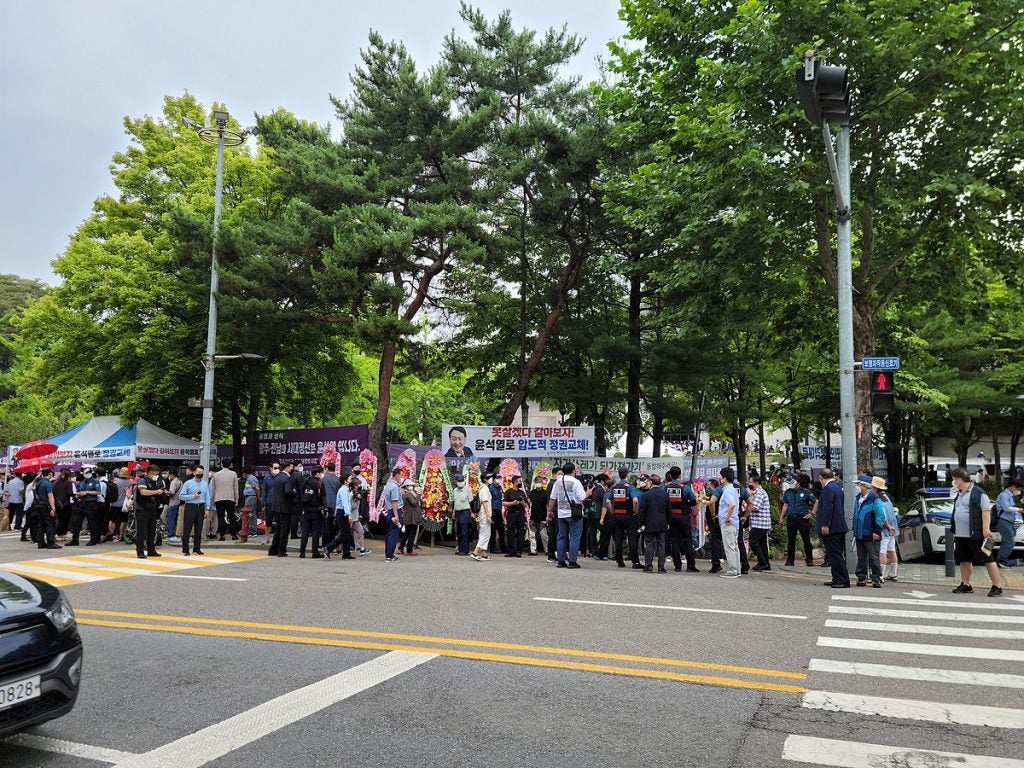
By contrast to the political elites’ clearly divergent stances on China, there is near consensus among the public. Over 80% of South Koreans view the PRC as a threat to their security and public opinion on China has plummeted from almost 40% of Koreans having a positive view of China back in 2018 to only around 25% holding this sentiment today. The public has also consistently maintained a positive view of the United States.
The growing public antipathy towards China has multiple sources. One of the most visible has been the disputes over the deployment of the American THAAD missile defense system to Korea in 2017. The system was not deployed in sufficient numbers to pose any significant challenge to Beijing’s strategic deterrent and was clearly aimed at North Korea and its growing rocket forces. Nevertheless, the Communist Party responded by lowering the number of tourists allowed to visit South Korea and by targeting Korean enterprises in China like Hyundai, Kia and Lotte (which owned a large chain of supermarkets in China) (How China Loses, L. Patey (2021)).President Moon’s conciliatory response was not received favorably by the Korean public and the incident undermined the argument that a position of strategic ambiguity can lead to increased leverage over both China and the United States. It is also worth nothing that the recent economic dispute with Japan shows that the South Korean people can be more then willing to jeopardize their economic interests in the name of nationalism.
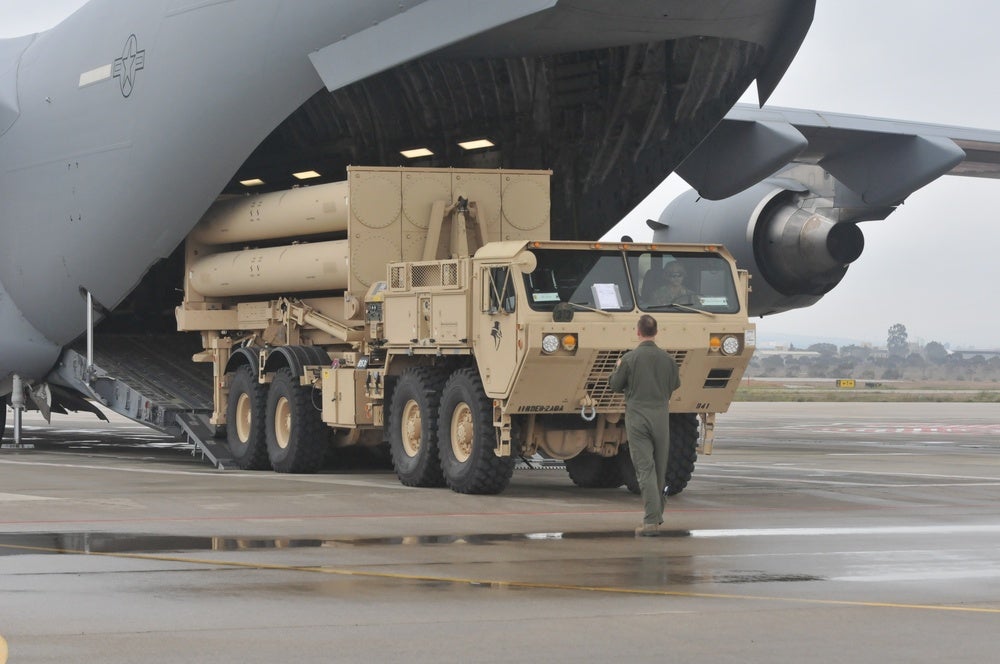
The most recent big issue to blow up has been “Chinese cultural imperialism”. A number of individual incidents such as the screening of a Chinese movie on the Korean War which portrayed the victory of Chinese forces over Korean and UN troops as well as claims to Chinese ownership over various Korean cultural artifacts such as traditional clothes and dishes in a number of Chinese mobile games, dramas and other media have contributed to this view. Many have taken this as an attempt to not only undermine Korean cultural heritage but also to assimilate ethnic Koreans living in China.
Another issue which has contributed to anti-Chinese sentiment is China’s handling and cover up of the Covid-19 pandemic (to which the PPP’s Yoon Seok-youl has on occasion referred to as the ‘Wuhan virus’). Chinese abuses in Hong Kong and elsewhere were not viewed favorably either.
While support for President Moon Jae-in has fallen to around 40%, the election race remains close and with five more months before Koreans go out and vote, much could change. The most staunchly anti-Chinese demographic is the Korean youth which has also been driven towards the right by the ruling party’s failure to address some of their other grievances in the economic sphere. In light of recent mayoral elections which were dominated by the PPP, it is likely that their vote will decide the election and the future of Korea’s foreign policy.
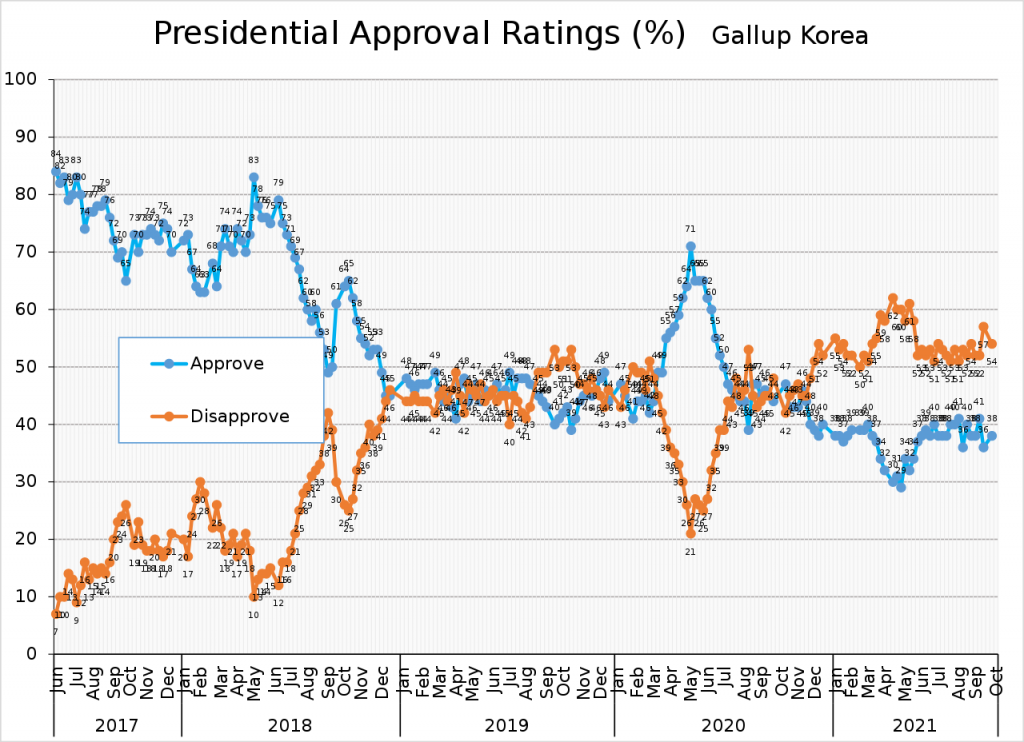
The United States could do two things to push South Korea in America’s preferred direction. The US has applied pressure on the ROK to work more closely with regional democracies and against China but by giving Koreans room for maneuver, the US could allow for a clear contrast between itself and China’s coercive meddling. The United States would also benefit significantly from expanding the alliance with the ROK beyond just defense. By placing a greater emphasis on economic ties, the United States would be able to counter the narrative that America brings security while China brings prosperity.
The opinions expressed in this editorial are those of the author and may not necessarily reflect the opinions or views of Overt Defense

